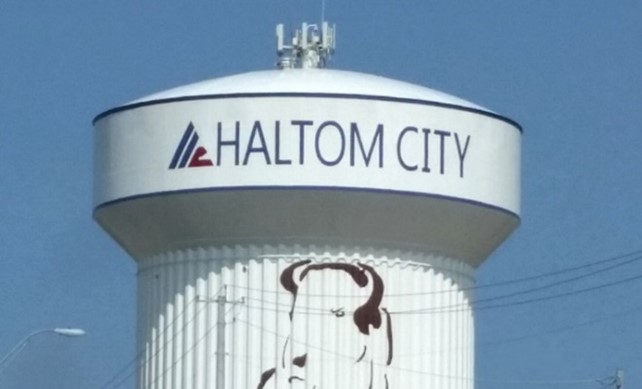HUBA Takes Council to Task for Only Wanting the Right Kind of Businesses in Haltom City, for Having a Regulate First Mindset and for Failing to Understand Why Earlier Efforts to Create an Entertainment District in Haltom City Didn’t Work
HALTOM CITY, TX, March 25, 2021 /Neptune100/ — Incumbent Haltom City Councilperson Marian Hilliard recently held a Facebook live session to share her vision for Haltom City as she seeks to keep her seat on Haltom City Council for Place 1.
In her Facebook live session, she said, “[Haltom City] can be as good as any other community around us. I think we already are.” HUBA agrees but believes that Haltom City is different from many of the surrounding communities. It isn’t Southlake or Colleyville. Unlike those cities, Haltom City has a large blue-collar workforce and many blue-collar trades-based small businesses that form an important backbone to the city’s economy.
“It’s a mistake to compare Haltom City to nearby communities and to try to remake Haltom City into Southlake by making it hard for existing blue-collar businesses to grow and by limiting the ability of new ones to come here,” said HUBA Executive Director Drew Weakley, owner of All Star Pawn in Haltom City.
“Even though Councilwoman Marian Hilliard talks about welcoming more small businesses to Haltom City, if you listen to the meeting, she states she only wants to put out the welcome mat for certain kinds of businesses,” said HUBA Executive Director Drew Weakley. In her Facebook live session, in discussing the kind of growth she wanted, Hilliard said that she didn’t want “just anything to fill space” but rather wanted new businesses for Haltom that were “quality things our residents want.” As an example of a good business, she cited a newly opened coffee shop and suggested residents might like more shopping and more food places.
“Competition and new businesses are what grow a city,” said Weakley. “She didn’t mention wanting a single blue-collar business in her pitch to voters, even though those businesses provide essential services and jobs to a lot of people in Haltom City,” said Weakley. Haltom City would be better served if it made more of an effort to welcome all kinds of small businesses, rather than just the ones Council members think of as the right kind, Weakley said. Weakley insists that HUBA supports a grocery store, more restaurants and more shopping for Haltom, but it also supports making room for blue-collar businesses and automotive businesses, which the city has been discriminating against for years.
“I think some City Council members don’t think we are as good as nearby communities and are embarrassed by the parts of Haltom City that have a lot of blue-collar businesses that they feel aren’t the right kind for the city,” said HUBA Member Ron Sturgeon, a local entrepreneur and real estate developer who started his first business, an auto repair shop, in Haltom City 48 years ago.
In the concluding portion of her Facebook live session, Hilliard was asked a question about food trucks. HUBA believes that current Tarrant County rules and regulations are sufficient and that trucks that meet those should be allowed to operate in the parts of Haltom City that are not residential.
“Why are we trying to protect the citizens of Haltom City from food trucks? Sturgeon asked. “An overwhelming majority of residents want more choices, and the trucks won’t go where there is no money. It’s a great example of the council’s overarching desire to overregulate and create barriers to entry for all businesses.”
Hilliard believes Haltom should have its own rules for food trucks and that the city should designate the places where they are allowed. Hilliard said she favors the trucks but that they cannot be allowed to operate without parameters. She said, “We need to lay out what their requirements are, what they must provide, we must set places where we want them to be.”
HUBA believes that Hilliard’s attempt to set detailed rules for food trucks in Haltom City will have an unintended consequence. “Food truck operators are savvy, and when they figure out that Haltom has a lot of rules that limit their ability to run the truck, they just won’t come here.”
Haltom should be open to any truck that meets Tarrant County’s requirements, has the right insurance, and passes all the county’s inspections and the truck should be free to set up in non-residential parts of Haltom City, according to Weakley. Food trucks should not be driven out of Haltom by the City Council’s impulse to micromanage them when the county has already done what is needed.
“There is a huge disconnect with the current council and the economics of business,” said one 50- year Haltom city resident who did not want his name used for fear of retribution, adding “Businesses don’t go where there is no money, and the city can’t and shouldn’t try to limit food trucks to a few parks when residents want them throughout the city,” he added. “The city has been trying to regulate the businesses they want and where they can be for decades, when they should just let markets work.”
In her Facebook live session, Hilliard addressed previous efforts to create an entertainment district in Haltom City in the Belknap Corridor. She said the effort failed even though the City Council supported it. In explaining the failure, Hilliard said, “We couldn’t attract businesses to us.” She added that developers were not as enthusiastic then as they are now about the prospects for an entertainment District. HUBA believes there is another serious disconnect with the economics of business. “She didn’t even mention the need for liquor, one real estate developer said, and the truth is the council supported it, but only on their terms.”
“A big reason the prior effort failed was that Haltom City does not allow the sale of liquor,” said Weakley. “It’s hard to attract the restaurants and the breweries to a district when all they can serve is beer and wine,” said Weakley. HUBA supports lifting these restrictions so that such a district becomes viable. The reality, Weakley insists, is that many people in Haltom City support an entertainment district with breweries and restaurants, and that it could come to pass if Haltom City Council would stop trying to decide which businesses should be welcome and where they go and stop trying to micromanage the businesses that are here and allow the sale of liquor.
In the closing portion of her Facebook live session, Hilliard addressed whether small business owners should serve on Haltom City Council. She noted that several had served in the past and said that Haltom City Council should not be composed entirely of small business owners because “there is more to life than making money” and “all walks of life” should be represented.
Weakley responds by noting HUBA has never advocated having a City Council composed entirely of business owners. “Having just one person on there who has made payroll, applied for a certificate of occupancy or dealt with regulatory issues would be a good start.” said Weakley. Having a member or two of Haltom City Council who also appreciated the many contributions of blue-collar businesses and workers to Haltom City would also be nice, added Weakley.
At Tuesday’s work session, the city manager did a good job of moving the council to create an ordinance, while the Mayor, who says he is business friendly, wanted to table the issue. HUBA believes enough time has been spent on this topic; there is no further need to “protect” citizens from food trucks.
To be added to HUBA’s email list or to share your ideas on ways to create more business opportunities in Haltom City, contact Weakley at [email protected] or (682) 310-0591. Follow HUBA on Facebook at https://www.facebook.com/Haltom-United-Business-Alliance-HUBA.
About Haltom United Business Alliance
Haltom United Business Alliance (HUBA) wants to give members of Haltom City’s business community an advocate and to keep those businesses informed about issues that affect them. They want to make sure Haltom City is business friendly and nurture small business growth, including automotive businesses, and bring more restaurants including breweries and a major grocery store to the city. New businesses and growth in existing businesses will create a stronger tax base which will allow the city to pay its first responders wages that are competitive with surrounding cities while improving Haltom City’s facilities and infrastructure. Anyone who owns a business in Haltom City is eligible to join. Dues are $20 annually or $50 for a lifetime membership, and membership is 100% confidential. To join, contact Drew Weakley at (682) 310-0591 or by email at [email protected]. Visit the group’s Facebook at Haltom United Business Alliance.
About Haltom City
Haltom City is a medium-sized city between Dallas and Fort Worth in Tarrant County, TX. The city is diverse and majority working class, with a growing population that is approximately 10% Asian-American and 45% Hispanic. Haltom City benefits from being only minutes from both DFW Airport and Downtown Fort Worth, with direct access to major highways including I-820 and SH-121. Small businesses that have historically provided products, services, and jobs to residents included a once thriving automotive industry. The city has seen a decline in small businesses, especially automotive businesses. The city is healthy financially, with median household income growing around 8% in the past year. Haltom City has opportunity for continued growth through undeveloped land and many vacant buildings, especially in major corridors close to the city’s center. The city has good staff and a city manager who is interested in seeing more businesses, but they can only do as directed by the council.



